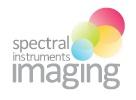Agilent provides xCELLigence impedance-based, label-free, real time cell analysis system and NovoCyte flow cytometers.
Automated microscopy and Spatial Proteomics
Automated microscopy and image analysis
Discover
Related topics
Webinar recording: Deep dive into Spatial Biology with MERSCOPE Ultra Platform

Aug 16, 2024
We invite you to learn more about MERSCOPE Ultra Platform. Webinar featuring Rob Mathis (Global Instrument Product...
Single-Cell Genomics applications ? Ideal work for the WOLF gentle cell sorter

Aug 2, 2024
The field of genomics and computational biology has progressed immensely over the last decade and new single-cell...
Celloger Pro live-cell analyzer: miniaturized and powerful tool for Spheroids and Organoids research

Jul 31, 2024
EV's and Nanoparticles in "Full Spectrum View" with the new Cytek ESP module

Jul 19, 2024
Cytek’s Enhanced Small Particle (ESP) Detection Option expands the capability of your Cytek Aurora or Cytek Northern...
Study finds that automated liquid-handling operations are more robust, resilient, and efficient!

Jul 18, 2024
Liquid handling devices (LHD) improve lab efficiency and accuracy. They automate liquid transfers, increase experiment...
Scaling Whole-Genome Sequencing to >50,000 single cells using cellenONE

Jul 16, 2024
cellenONE technology enabled the creation of tens of thousands of high-quality single-cell genomes, paving the way for...
Automatic, Real Time Acquisition of Bioluminescent Kinetic Curves

Jun 27, 2024
Watch this pre-recorded webinar with Dr. Andrew Van Praagh to learn how our new Aura software feature —Kinetics—...
Theranostics: From Mice to Men and Back

Jun 25, 2024
Recorded webinar
Presenters: Prof. Dr. Ken Herrmann and Prof. Dr. Katharina Lückerath – Moderator: Hannah Notebaert
Orion 2024 AACR poster: 17-plex single-step stain and imaging of cell Lung Carcinoma

Jun 21, 2024
RareCyte Orion is a benchtop, high resolution, whole slide multimodal imaging instrument. A combination of quantitative...
New release now available: Cytek Amnis AI v3.0 Software

Jun 17, 2024
The new Cytek Amnis AI v3.0 image analysis software features an integrated transfer learning algorithm, an option to...

Mar 22, 2016
Over the last two decades, a number of blockbuster drugs have been withdrawn or have incurred safety warnings by regulatory agencies due to adverse cardiac effects. In addition, lead compounds or drug candidates are frequently terminated at late stages of drug development due to cardiac safety concerns. Both of these factors can significantly impact the overall cost of drug discovery; consequently, pharmaceutical companies and regulatory agencies have implemented procedures to address these issues.
Most, if not all, in vitro assay systems for cardiac safety are designed to screen for surrogates of arrhythmia, such as hERG channel interaction, rather than arrhythmia itself. Assays designed to screen for compounds that may affect repolarization and induce arrhythmia in the context of the whole heart or heart tissue are not implemented until much later in drug development. These include sophisticated, technically demanding, lowthroughput, and costly procedures such as the Purkinje fiber assay, ventricular wedge assay, and the Langendorff whole heart assay, or telemetry experiments in live and anesthetized animals. The field of preclinical cardiac safety can certainly benefit from an assay system that allows for integrated assessment of compound action on ion channel and non-ion channel targets involved in cardiac excitation-contraction coupling.
The RTCA Cardio Instrument in conjunction with iCell Cardiomyocytes comprises an assay system providing integrated assessment of compound action on multiple targets involved in heart function. This assay system can sensitively and quantitatively detect the effect of compounds on the major ion channels involved in heart function, namely calcium, sodium, and potassium channels. Another major advantage of the assay system is the time resolution. The RTCA Cardio Instrument has a data acquisition rate of 12.5 ms per well of a 96-well plate and can be used simultaneously to monitor acute and chronic drug effects up to days and weeks. The utility of the time-dependent monitoring of compound action on cardiomyocytes can be demonstrated by testing compounds that acutely and directly block hERG channels (E4031, cisapride, etc.) and compounds that interfere with protein trafficking (pentamidine) in a sub-chronic manner. The RTCA Cardio Instrument is able to detect the effects of these compounds on the beating rate and duration of iCell Cardiomyocytes.
The xCELLigence System RTCA Cardio Instrument, in conjunction with iCell Cardiomyocytes, represents a physiologically relevant and predictive assay system for preclinical cardio-safety assessment of lead compounds. The features of this assay system, including time resolution, dynamic monitoring of mechanical beating activity of cardiomyocytes, and 96-well throughput, will surely provide additional mechanistic and toxicity information for compound action on the heart.
Brand profile
Agilent provides xCELLigence impedance-based, label-free, real time cell analysis system and NovoCyte flow cytometers.
More info at:
www.aceabio.com